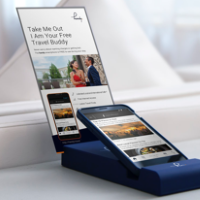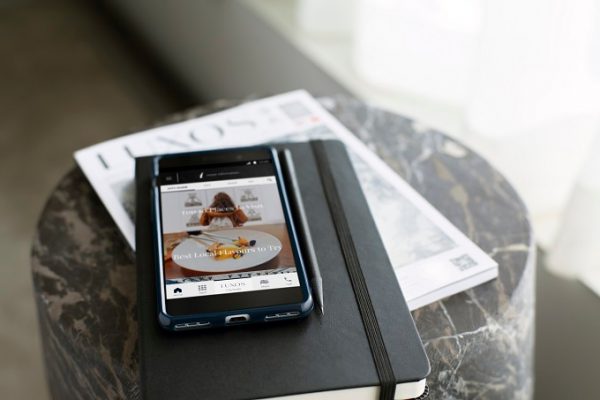More hoteliers are using innovative technology and smarter communication devices inside and outside of the hotel room to enhance the guest experience.
Modern travelers are now welcomed with user-friendly devices and systems with a personal touch. Leading IoT hospitality solutions include robotic butlers, cloud-based voice services, and holistic 2-in-1 solutions that combine platforms with devices for a unique user journey.
As the main driver in developing a hotel room for the future, user-interfacing programs are on the rise to better understand guest behavior. Early adopters of hotel guest-facing technology see Hilton and Starwood employing concierge robots and Wynn Resorts integrating Amazon’s Alexa.
Modern Expectations
The traveler of today is tech-savvy, challenging hotels to stay up-to-date with their evolving needs and expectations. Mike Dearing, Managing Director of Marriott Hotels International stresses the importance of a hoteliers’ willingness to customize experiences as a key to success. Technology facilitates the ability to continuously learn about guests through data in order to innovate services that sustain long-term competitive advantages.
While fundamentals like excellent service, room comfort, cleanliness, and hotel location remain steadfast essentials, the trend towards unique experiences is equally elemental for the future. As one of the ways in becoming more in-tune with guest satisfaction, in-room technology plays an essential role in shaping the future.
“The answer is finding the sweet spot for how can we take the right pieces from the consumer technology experience…” — Josh Weiss, Hilton’s Vice President of Brand and Guest Technology.
All-In-One
Faced with one too many solution hosts, hoteliers continue to encounter issues with system integrations and installations, on top of lengthy staff training. Streamlining this process is an all-in-one solution that seamlessly integrates an array of crucial systems fundamental to hoteliers.
Fueled by a customer-centric approach, hotels empower guests to control their hotel room from a single device facilitating hotel chat communication, calls, internet access and amenities—curtains, lighting, temperature etc.
According to the Hotel 2025 Oracle Study, 65% of guests indicated smart design that provides control over room settings would enrich the stay experience, encouraging 43% to visit repeatedly.
Existing solutions feature smartphone apps and in-room tablets, yet with increasing expectation of 24-hour convenience, hotels already see demand for on-the-go connectivity. IoT solutions like handy Suite tackle the gap in the market with multi-system integration and portable devices that respond to the demands of the future traveler.
Aim-to-delight
Most crucial for a memorable in-room experience, is a hotel’s ability to wow guests with technology.
As Hilton CEO Christopher Nassetta outlined “Imagine a world where the room knows you, and you know your room”.
Hotels will find high growth potential in emerging technologies like Amazon’s Alexa, a voice-enabled AI assistant that can provide value-added services. All-encompassing in-room hubs like the D2 from Tink Labs enable guests with instant hotel communication through smart voice technology (powered by Alexa). With Cloud PBX system integration, a fully immersive guest-to-hotel experience is created, redefining the scope of IoT solutions as a guest’s hotel stay is covered from all touch points.
Inter-connectivity highlights mobile messaging as a rising trend in IoT room technology. Considered as a preferred means of communication, guests can receive personalized responses in real-time, cutting down on waiting.
“Messaging has become the key communication experience. It’s fast, direct, visual, and allows for multiple conversations to happen in parallel.” — Baldwin Cunningham, VP Digital Brand Strategy, CNN.
Understanding guests’ needs means to be able to deliver more effective and higher quality services, ultimately increasing guest satisfaction. Online review engagement is stimulated and brand loyalty restored. With rating portals like TripAdvisor becoming increasingly prominent in hotel rooms, guests are encouraged to leave feedback during their stay, completing a full user experience from pre- to post-journey. Technology will grow to be evermore intuitive with the rising demand for personalization. As hotel rooms are made smarter and more streamlined, the modern traveler will experience greater convenience beyond the limitations of the hotel room.






